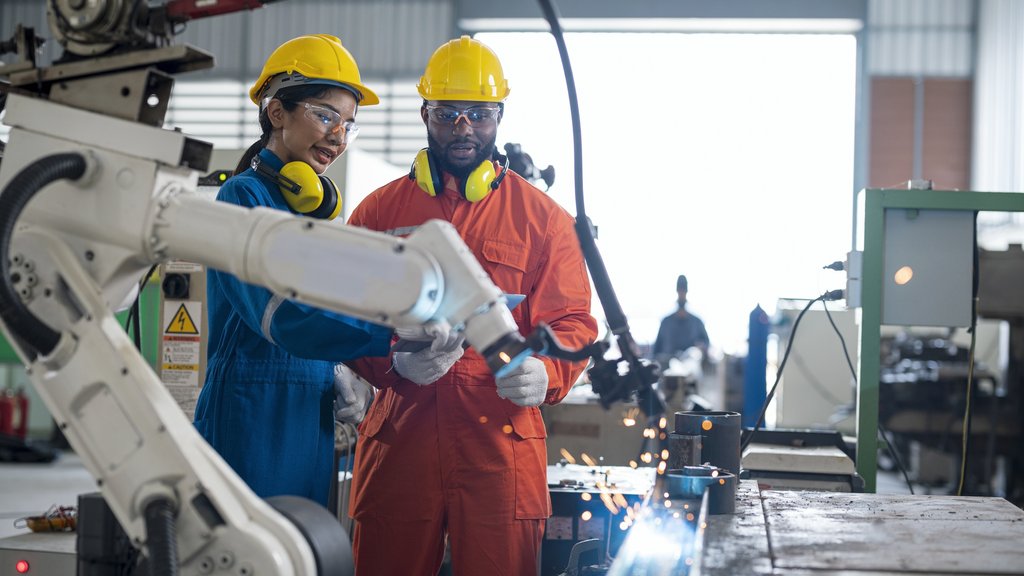zoharmusic.com – In the ever-evolving landscape of manufacturing, staying ahead of the curve is not just an option but a necessity for survival. The integration of Artificial Intelligence (AI) into factory operations has emerged as a game-changer, offering unprecedented opportunities for optimization, efficiency, and productivity. AI, with its ability to process and analyze vast amounts of data, learn from patterns, and make predictions, is transforming the way factories operate, from the shop floor to the top floor. This article delves into the multifaceted role of AI in factory optimization and its impact on the future of manufacturing.
Predictive Maintenance:
One of the most significant contributions of AI to factory optimization is predictive maintenance. Traditional maintenance schedules are often based on fixed intervals or human judgment, which can lead to unexpected downtime or unnecessary maintenance. AI algorithms, on the other hand, can analyze data from sensors embedded in machinery to predict when equipment is likely to fail or require servicing. This proactive approach minimizes downtime, extends the life of equipment, and reduces maintenance costs.
Quality Control:
AI-powered vision systems and machine learning algorithms are revolutionizing quality control in factories. These systems can detect anomalies and defects in products with a level of precision and speed that far surpasses human capabilities. By automating the inspection process, AI ensures consistent quality standards, reduces the risk of human error, and accelerates the production cycle.
Supply Chain Optimization:
The complexity of modern supply chains requires sophisticated management to ensure that materials and products move efficiently from suppliers to manufacturers to customers. AI can analyze vast amounts of supply chain data to optimize logistics, predict demand, and manage inventory levels. This results in reduced waste, lower transportation costs, and improved customer satisfaction through timely deliveries.
Energy Efficiency:
AI can play a crucial role in optimizing energy consumption in factories. By analyzing patterns in energy usage and production processes, AI systems can identify inefficiencies and suggest adjustments to reduce energy consumption without compromising production output. This not only leads to cost savings but also contributes to sustainability and environmental responsibility.
Workforce Augmentation:
AI is not about replacing human workers but augmenting their capabilities. By automating routine and dangerous tasks, AI allows human workers to focus on more complex and creative aspects of production. AI-driven training programs can also enhance the skills of the workforce, ensuring they are equipped to handle the latest technologies and processes.
Decision Support Systems:
AI-powered decision support systems provide factory managers with real-time insights and recommendations based on data analysis. These systems can help in strategic decision-making, from scheduling production runs to managing resources, ensuring that factories operate at peak efficiency.
Conclusion:
The role of AI in factory optimization is transformative, offering solutions that were once the realm of science fiction. By leveraging AI technologies, manufacturers can achieve higher levels of efficiency, productivity, and quality. As AI continues to evolve, its integration into factory operations will only become more sophisticated, driving the fourth industrial revolution forward. For manufacturers willing to embrace AI, the future is bright, with endless possibilities for innovation and growth on the horizon.
